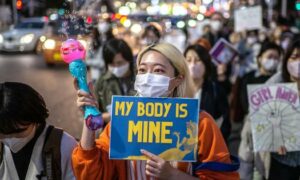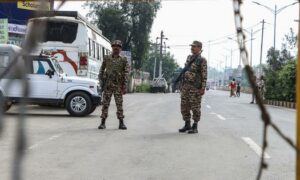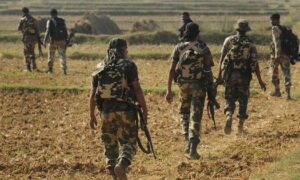
Throughout the night, the self-appointed leaders of the coal town descended upon the coal company management and made all kinds of demands – food, water, electricity, housing, permanent jobs. The three officers sat in their office, bleary-eyed and grim, waiting for morning. They knew better than to respond to an angry mob.
Phones rang through the night – the Collector, the SP, the Minister, the media, the General Manager – everyone wanted reports. What was there to report? For years, the coal company had given notices about which no one gave a damn. Some of the very persons who were asking for reports today had stood with the people against eviction. Nearly three hundred families would have to be shifted out, and the coal company would be asked to find the funds for relief and rehabilitation. The Area Manager calculated in his head how much all of it would cost the company, and it exasperated him, holding the company responsible when it was really the fault of these idiots. Weren’t they warned year in and year out?
“Do something, do something, do something,” the mob insisted.
The Area Manager finally opened his mouth, “Look, we told you there are very old, abandoned underground mines in that area. These mines were operated before independence, in the 1920s and 30s. Even I don’t know the exact locations. Do you think the British left maps for us? We just know there are tunnels under the earth and pillars holding up the roof. The water must have washed away a pillar or loosened the walls of a tunnel or perhaps a crack developed somewhere and the roof gave away … who knows what exactly happened under the earth? Sinkholes have happened in areas of old underground mines…”
The hollering crowd was not convinced.
“Ghanshu’s house disappeared into the khadda! What is this faltu lecture you are giving us?!”
They thumped the manager’s desk and their fists punched the air, even though their sleep-deprived eyes were red and exhaustion lined their faces.
The manager slunk back to silence. He recognised some of these men who worked for the company – none on the payroll, all employed through labour contractors and sub-contractors. They worked ten, twelve, fourteen hours without overtime or the other perks that a company pays its permanent workers. They were unkempt and smelled of liquor. Their eyes bulged and their hair looked like straw. Tomorrow these very men would be pampered by political leaders – offered solace, assurances of housing or may be a huge lump sum in compensation. They were not men but votes, their existence reduced to the single index finger that pressed the button on the voting machine. The Area Manager was disgusted and looked away.
There was a lull. The rain had stopped for a while. The Junior Engineer’s wife had sent coffee in a steel flask with the driver, but it remained untouched on the table. None of the officers dared pour out a cup for fear of the men who surrounded them. Some sat on the floor, others stood leaning on the walls. The leaders sat on the chairs meant for visitors. It was a packed room.
“Where is your Ghanshu? Whose house has disappeared?” the Area Manager asked the young man who sat before him, arms folded tightly across his chest.
Immediately, the man turned around and yelled, “Ghanshu Kaka! Ikde ya lavkar – Uncle, come here quick!”
But Ghanshu was not amongst the crowd.
“Ghanshu … Kaka! Where are you?”
The call echoed across the office block and into the verandah and then into the pitch-black darkness outside. Faces looked at each other quizzically.
“He is not here.”
The three officers sat at the desk, sipped coffee and watched quietly as the motley crowd around them fumbled in dismay, unable to find the man whose house had disappeared. Each one swore that they had seen him run away at the first tremble of the earth. An uneasy quietness came over the group. The leaders dispersed. Some went away, but many sat where they were, on the floor, hugging their knees wearily, and dozed.
The men at the desk kept their patience. At dawn, the contractor arrived, freshly shaven and neatly dressed and made his way into the office. The manager looked at him with intense displeasure.
“Did this man, Ghanshu, work for you?”
“Ji sir,” said the contractor, “He was an old hand.”
“You better find him. The police will be here soon for his statement and we shall need to talk to him too,” said the Area Manager, relieved to transfer the responsibility to another shoulder. Then he pushed back his chair, got up and left.
The contractor managed to cajole and threaten a group of us to go back to Amrai Ward in search of Ghanshu. I was as reluctant as the rest of them. We dreaded every step back through the muck and into the narrow, deserted lanes of the colony. None of the doors was locked. We peeped into every house. We found people who had been left behind in the melee – old people, infirm and blind – they shouted out curses at us, begging us to take them out. Restless animals stared at us and made strange sounds – stray dogs, pet dogs, goats. The hens squawked furiously from unseen corners. We called out Ghanshu’s name but he was nowhere to be seen.
Finally, we reached the end of the colony where a huge pit, eighty feet deep, stretched out at our feet. This is where Ghanshu’s house once stood, a single room, a tiled roof and a yellow plastic sheet to cover the places where the tiles had broken. The incessant downpour through the night had filled the bottom of the pit with slush. We held on to each other and balanced ourselves on the brink. With great trepidation, we peered into the hole, knowing in the core of our hearts that we would see what we did not want to. Stretched across the rubble of his house and his scanty belongings right at the bottom of the slimy hell-hole was Ghanshu, his arms spread-eagled, his face and body barely visible under the thick black mud, his lips parted. I did not sleep for nights after seeing him. Poor Ghanshu!
The management decided that it would be too dangerous to retrieve Ghanshu’s body – the underground tunnels could sink further, the ground was flowing in inky coils. Who could dare to lift him from where he lay dead in the mired ditch? Since he did not have any family, there was no one to perform any funeral rites or claim the compensation that the local MLA announced. The contractor asked around if there were other men from his native village, but no one came forward.
There was not much time to mourn, for three hundred and sixteen families remained to be evacuated and provided with food and other items of daily use. The opposition party raised the issue with great fervour and the media played video clips that had already gone viral on social media. The government announced a housing project for the people of Amrai Ward and a sufficiently large fund to ensure quick construction. The coal company managers were more than satisfied that Amrai Ward had been cleared of encroachments and the land had finally reverted to them. They waited for the monsoons to subside and planned for a fresh survey for coal in the area.
Indeed, if you arrive at this place of perpetual darkness and spit the coal dust out of your mouth to ask, “Why on earth do people live in this hell-hole?” some lad will bare his teeth and sing, Jeena yahan marna yahan iske siva jaana kahan.
Excerpted with permission from A Mouthful of Coal Dust in A Death in the Forest: Stories, Paromita Goswami, Red River Press.
This article first appeared on Scroll.in
📰 Crime Today News is proudly sponsored by DRYFRUIT & CO – A Brand by eFabby Global LLC
Design & Developed by Yes Mom Hosting






